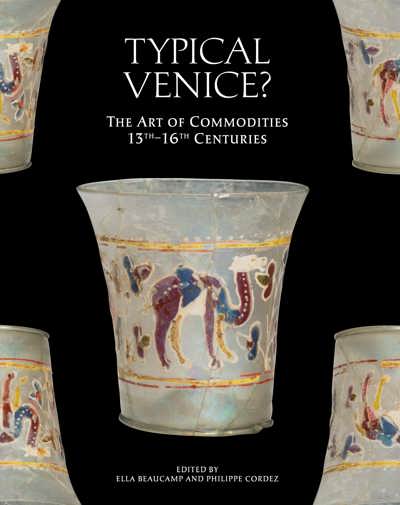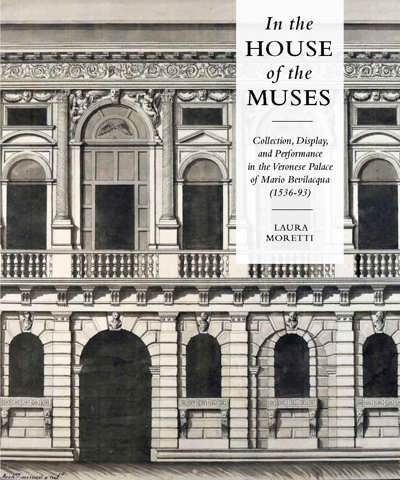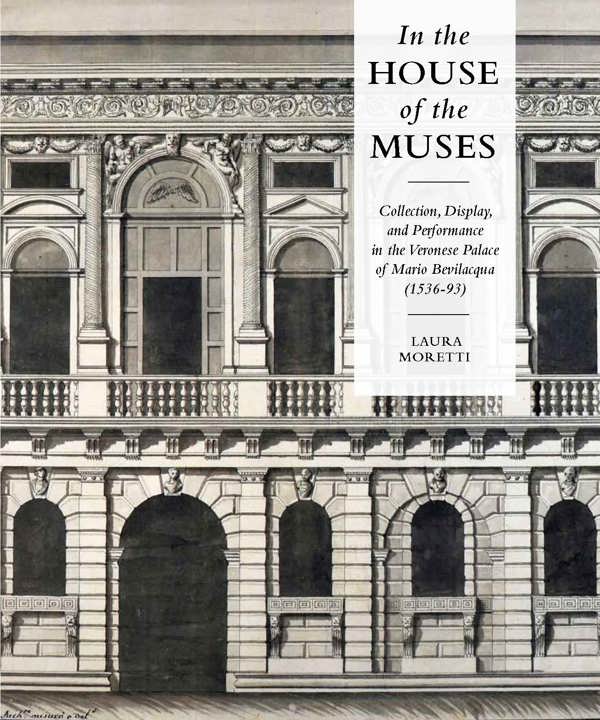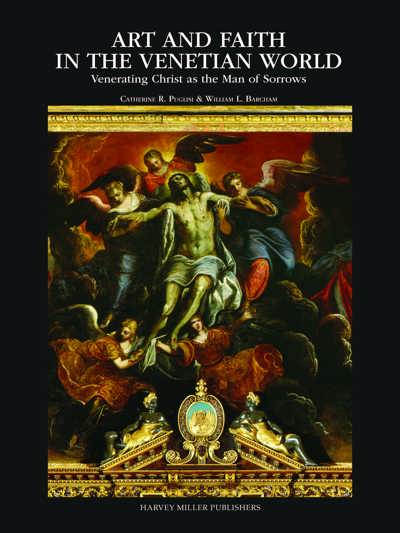
In the House of the Muses
Collection, Display and Performance in the Veronese Palace of Mario Bevilacqua (1536-93)
Laura Moretti
- Pages: xxi + 295 p.
- Size:220 x 280 mm
- Illustrations:138 col.
- Language(s):English
- Publication Year:2020
- € 150,00 EXCL. VAT RETAIL PRICE
- ISBN: 978-1-912554-44-7
- Hardback
- Available
This book reconstructs a cross-section of the activities that took place in the rooms of the Veronese palace of Mario Bevilacqua, with the aim of shedding light on the life, relationships and aspirations of a preeminent figure in the world of collecting and Italian artistic patronage in the final quarter of the sixteenth century.
“In the House of the Muses: un titolo accattivante, capace di incuriosire i lettori, soprattutto se desiderosi di entrare in un palazzo del Rinascimento, quello del veronese Mario Bevilacqua (1536–1593), e di riviverne gli spazi e l’atmosfera. Il volume di Laura Moretti si caratterizza per essere squisitamente interdisciplinare, offrendo un articolato intreccio di differenti ambiti di studi, ciascuno contraddistinto da approcci di metodo propri: storia dell’architettura, storia della musica, storia del collezionismo. Una prospettiva, quello scelta dall’autrice, che consente di meglio definire le relazioni tra oggetti, spazi e fruitori, relazioni finora emerse solo in controluce nella letteratura precedente dedicata a uno degli indiscussi protagonisti dello scenario culturale veronese di secondo Cinquecento, Mario Bevilacqua, esponente di punta di una ricca famiglia di mercanti poi ammessa nella società nobiliare. Il volume è ambizioso, fondato su capillari ricerche d’archivio con puntuali revisioni di dati già messi a disposizione da altri studiosi e il reperimento di documenti inediti, confluiti in un’apposita appendice di fonti che chiude la pubblicazione Accompagnato da un ricco apparato di illustrazioni di eccellente qualità, il testo è strutturato in due parti principali.” (Linda Borean, in 21: Inquiries into Art, History, and the Visual — Beiträge zur Kunstgeschichte und visuellen Kultur, 3, 2021, p. 187)
"In the House of the Muses: un titolo accattivante, capace di incurio-sire i lettori, soprattutto se desiderosi di entrare in un palazzo del Rinascimento, quello del veronese Mario Bevilacqua (1536–1593), e di riviverne gli spazi e l’atmosfera. Il volume di Laura Moretti si caratterizza per essere squisitamente interdisciplinare, offrendo un articolato intreccio di differenti ambiti di studi, ciascuno contraddi¬stinto da approcci di metodo propri: storia dell’architettura, storia della musica, storia del collezionismo.” (Linda Borean, in 21: INQUIRIES INTO ART, HISTORY, AND THE VISUAL, 3, 2021, p. 187)
Laura Moretti is a Senior Lecturer in Art History at the University of St Andrews. Her field of expertise is Italian Renaissance art, architecture and music, with a particular interest in the history of early modern books.
Mario Bevilacqua was one of the greatest collectors of the second half of the sixteenth century in the territories of the Republic of Venice. He was a true lover of literature and the arts, expressing a deep appreciation for music and an instinctive attraction to antiquities. In the family palace on today’s Corso Cavour in Verona renovated in the mid-sixteenth century by the architect Michele Sanmicheli, Bevilacqua set up what early sources describe as a "museum" open to the public. Here it was possible to admire paintings, sculptures, drawings and prints, coins and medals, manuscripts, printed books and musical instruments – all objects collected over the course of approximately twenty-five years, to which Mario dedicated much of his time and resources. The library, also referred to as "studio", was considered one of the richest in the city, while the "galleria" contained masterpieces such as Tintoretto’s Paradise now at the Louvre, as well as antique statues and busts of Roman emperors. The famous "ridotto", in which salaried musicians and singers performed regularly, was frequented by citizens and foreigners and enjoyed international renown.



